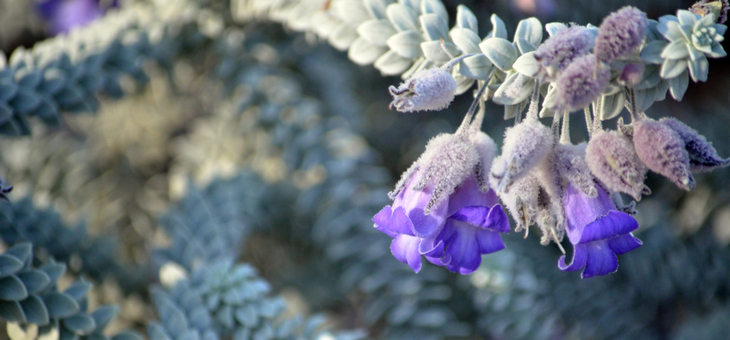A plant that is only found in the Australian desert and has been used as a traditional bush medicine by Indigenous Australians may provide some hope for cancer sufferers.
Natural remedies used for centuries by different cultures around the world have long been studied by scientists who try and identify active substances in the plants to find uses for them in modern-day medicine.
Researchers from the University of Copenhagen studied the Australian desert plant Eremophila, which is only found in Australian deserts, and found that it contains a substance that appears to counteract resistance to some chemotherapy treatments.
Read: Scientists develop promising vaccine for recurrent STI infections
Malene Petersen, one of the researchers on the study, said that sometimes cancer cells developed an ability to fight chemotherapy when it was used to treat patients, which made the discovery of this plant important.
Nine out of 10 cancer deaths are a result of resistance to cancer medicine. When a cancer patient fails to respond to the treatment or experiences a so-called relapse following treatment, it is most often because the cancer cells have learnt to defend themselves against the medicine.
“We have found a substance in a plant that appears to inhibit cancer cells’ ability to defend themselves against chemotherapy,” Ms Petersen said.
“The plant is only found in Australia and has traditionally been used by the Aboriginal people.”
Read: How to spot an abscess and what to do about it
The natural substance isolated by the researchers is a flavonoid. They tested the substance on human cancer cells in combination with the active substance of the drug Irinotecan, which is used to fight aggressive lung and colon cancers.
The results showed that a combination of the natural substance and chemotherapy was able to inhibit the cancer cells’ ability to fight the medicine, explained Professor Dan Stærk, who supervised the project.
He explained that cancer cells that were resistant to chemotherapy produced a large amount of a protein that was responsible for transport the medicine out of the cancer cell, a “so-called efflux pump”.
Read: How air pollution affects brain function
“This natural substance isolated from the Australian plant is able to inhibit this pump, which makes it difficult for the cancer cell to remove the medicine effectively,” Prof. Stærk said.
There are around 230 different species of the plant Eremophila, which are only found in Australian deserts.
“An impressive collaboration across continents has made this research project possible,” Prof. Stærk said. “We have received help from a retired Australian botanist, who drove 55,000 kilometres through dry West Australia to collect plants.
“And a colleague at the University of Melbourne has helped us perform DNA analyses of the plants to help us predict which plants were worth studying,” he said.
“Finally, colleagues at the University of Copenhagen have explored the potential of producing bioactive substances sustainably in the future using synthesis biology.”
The researchers said that they were not surprised at making the discovery in nature, explaining that 70 per cent of all cancer drugs came either directly from nature or were inspired by substances found in nature.
“We already have products that inhibit the efflux pump. But they do not work optimally, because they are not specific enough and can have lots of side-effects,” Prof. Stærk said.
The researchers said that the substance in the plant may also be able to play a role in the treatment of antibiotic resistance.
Do you believe we still have a lot discover about natural remedies? What natural treatments do you swear by? Why not share your thoughts in the comments section below?
If you enjoy our content, don’t keep it to yourself. Share our free eNews with your friends and encourage them to sign up.

